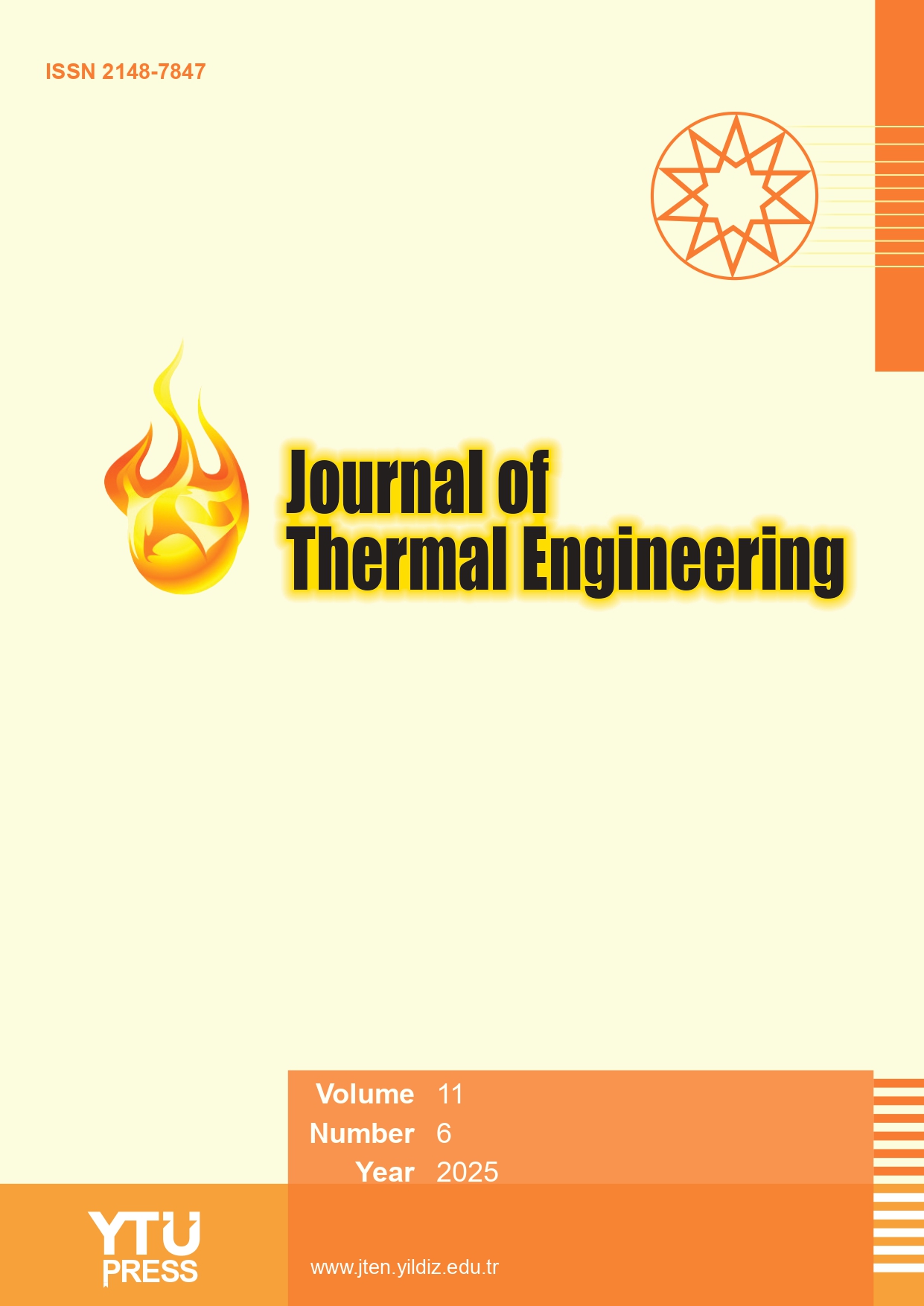2Department of Renewable Energies and Environmental, Faculty of New Sciences and Tech., University of Tehran, Tehran, Iran
Abstract
This paper makes attempt to optimize a high temperature differential Ericsson engine with several conditions. A mathematical approach based on the finite time thermodynamic was proposed with the purpose of gaining thermal efficiency, the output power and the entropy generation rate throughout the Ericsson system with regenerative heat loss, finite rate of heat transfer, finite regeneration process time and conductive thermal bridging loss. In this study, an irreversible Ericsson engine is analyzed thermodynamically in order to optimize its performance. In addition, three Scenarios in multi objective optimization are presented and the results of them are assessed individually. The first strategy is proposed to maximize the Ecological function, the thermal efficiency and the Exergetic performance criteria. Furthermore, the second strategy is suggested to maximize the Ecological function, the thermal efficiency and Ecological coefficient of performance. The third strategy is proposed to maximize the Ecological function and the thermal efficiency and Dimensionless ecological based thermo environmental function. Multi objective evolutionary algorithms based on NSGA II algorithm was applied to the aforementioned system for calculating the optimum values of decision variables. Decision variables considered in this paper including the regenerator’s effectiveness, the high temperature heat exchanger’s effectiveness, the low temperature heat exchanger’s effectiveness, the working fluid temperature in the low temperature isothermal process and the working fluid temperature in the high temperature isothermal process. Moreover, Pareto optimal frontier was achieved and an ultimate optimum answer was chosen via three competent decision makers comprising LINMAP, fuzzy Bellman Zadeh, and TOPSIS approaches. The results from scenarios shown that third scenario is the best scenario.



















